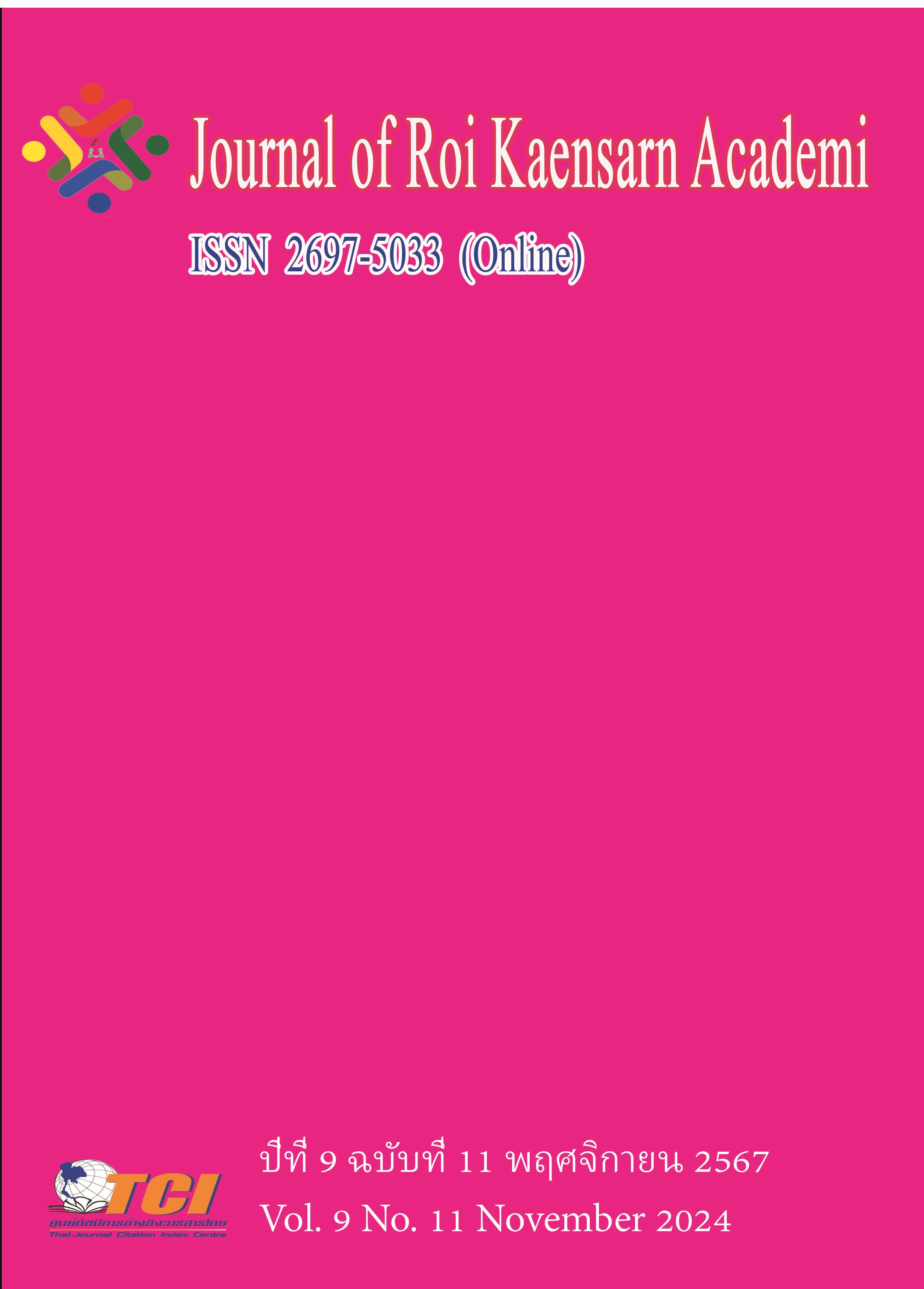The Ethical Leadership Model for Administrators of Normal Colleges and Universities in Liaoning Province
Main Article Content
บทคัดย่อ
The objectives of this research were: (1) to determine the components and indicators of ethical leadership for administrators of normal colleges and universities in Liaoning Province; (2) to propose ethical leadership model for administrators of normal colleges and universities in Liaoning Province; and (3) to develop implementation guidelines for ethical leadership for administrators of normal colleges and universities in Liaoning Province.The research was mixed methodology research including qualitative research and quantitative research. Population was administrators and teachers from 10 normal colleges and universities in Liaoning Province, the People’s Republic of China, totaling 7903.The sample was obtained by proportional stratified random sampling method determined by statistical program, totally 367. The instruments used for collecting data were a semi-structured interview form, a five-point rating scale questionnaire, and Focus Group Discussion form. Descriptive statistics and Confirmatory Factor Analysis were used to perform data analysis by using statistical software as well as the content analysis was employed.
Research results were revealed that: (1) the components and indicators screened from theoretical framework, consisted of six components and 41 indicators of ethical leadership for administrators of normal colleges and universities in Liaoning Province namely, people orientation, fairness and justice, power sharing, ethical guidance, role clarification and integrity and honesty; (2) developed model of the ethical leadership for administrators in normal colleges and universities in Liaoning Province was consistent with the empirical data (X²/df=1.742, GFI=0.855, AGFI=0.838, NFI=0.876, IFI=0.943, TLI=0.940,CFI=0.943, RMSEA=0.045); and (3) there were 21 implementation guidelines for the ethical leadership for administrators of normal colleges and universities in Liaoning Province.
Article Details
References
Arar, K., Haj, I., Abramovitz, R., & Oplatka, I. (2016). Ethical leadership in education and its relation to ethical decision-making: The case of Arab school leaders in Israel. Journal of Educational Administration, 54 (6), 647–660.
Bass, B. M., & Steidlmeier, P. (1999). Ethics, character, and authentic transformational leadership behavior. Leadership Quarterly, 10 (2), 181–217.
Berkovich, I., & Eyal, O. (2020). Ethics education in leadership development: Adopting multiple ethical paradigms. Educational Management Administration & Leadership, 48 (2), 270–285.
Brown, M. E., Treviño, L. K., & Harrison, D. A. (2005). Ethical leadership: A social learning perspective for construct development and testing. Organizational Behavior and Human Decision Processes, 97 (2), 117–134.
Brown, M. E., Treviño, L. K., & Hartman, L. P. (2003). A qualitative investigation of perceived executive ethical leadership: Perceptions from inside and outside the executive suite. Human Relations, 56 (1), 5–37.
Hammersley-Fletcher, L. (2015). Value(s)-driven decision-making: The ethics work of English headteachers within discourses of constraint. Educational Management Administration & Leadership, 43 (2), 198–213.
Hsieh, C. -C., Tai, S. -E., & Li, H. -C. (2023). A Bibliometric Review of Ethical Leadership Research: Shifting Focuses and Theoretical Insights. AERA Open, 9 (1), 1–13.
Kalshoven, K., & Den Hartog, D. N. (2009). Ethical leader behavior and leader effectiveness: The role of prototypicality and trust. International Journal of Leadership Studies, 5 (2), 102–120.
Kalshoven, K., Den Hartog, D., & De Hoogh, A. (2011). Ethical leadership at work questionnaire (ELW): Development and validation of a multidimensional measure. Leadership Quarterly, 22 (1), 51–69.
Treviño, L. K., Brown, M., & Hartman, L. P. (2003). A qualitative investigation of perceived executive ethical leadership: Perceptions from inside and outside the executive suite. Human Relations, 56 (1), 5–37.
